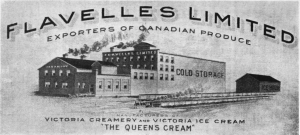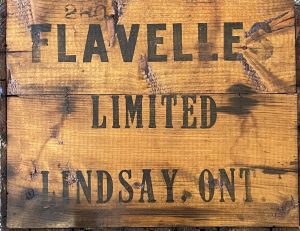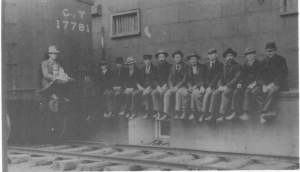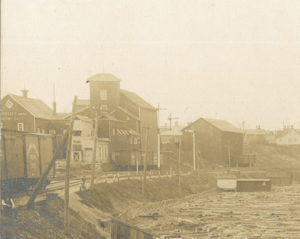Developing a Monopoly
Creameries were far and few in Victoria County leading up to the twentieth century. Small factories began popping up throughout the area and William knew that his cold storage operation would be the needed link for the small factories to remain competitive on an international market. There was a problem though with his theory which he soon recognized after a decade of dealing with small local creameries: in order to maintain access and monopoly of produce exports to the U.S., Great Britain and Western Canada, the product had to be uniform. Buying from small factories in small quantities made this impossible, William contended.
Having served as a director of the Victoria Creamery located on Russell Street, William sought to buy this business in order to create his uniform product. In 1912, Flavelles Limited formally acquired Victoria Creamery and moved its operation to the cold storage site. On the cusp of producing high quality uniformed butter, the entire structure of the cold storage was remodeled extensively. This included adding new cold storage rooms, new cold storage equipment, and an up-to-date creamery that would soon be able to produce over 100,000 pounds of butter each year.
The export of poultry was said to be an entire industry alone within Flavelles Ltd. Within the poultry department, pictured below, the process of handling and packing poultry was machine-like. Roughly 8 men would be in charge of the killing pens with “finishers” who are charged with plucking down feathers and preparing them for shipment to mattress companies. Next, the birds would be cleaned and packed 6 to a crate at minimum and stored 6 degrees below zero before shipment. Handling over 1000 birds a day, William would rent out the skating rink on Russell Street for extra space. Before the introduction of labour reforms, children would be hired as extra hands to pluck feathers and receive a wage of two cents per bird. At any given time, Flavelles Ltd. would have over 6000 birds being raised and fed for processing.
The nature of this business continued throughout the early part of the 1910s. The cold storage business in Lindsay played an integral part during the early parts of World War I, soon becoming an even larger and more active exporter of produce to Great Britain after some years of precarious and spasmodic trade.





